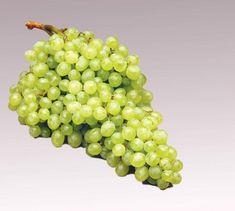
Cypriot table grape production is in decline says Ioanasis Shekeris, commercial counsellor for Cyprus Trade centre. “We are left with seedless Sultana as our core variety and exports have declined in the last few years.”
SEDIGEP is a co-operative grower’s union established in 1964 based in Limassol and since 2002 has also offered organic grapes. The group has 70 per cent market share in the export of table grapes from June to August, mainly to Germany and Scandinavia, with very little to the UK.
The main varieties are Sultana, a medium-sized, sweet berry and Perlette, a seedless big berry. The grapes are packed in open-top five, seven and eight Kilogramme cartons, in wither paper or plastic bags and shipped by sea, except at the start of the season when volumes are airfreighted.
Grape is an ancient crop for Cyprus and grapes are grown along the coastline and on lower mountain slopes in the area between Limassol and Paphos. Table grape production accounts for approximately 20 per cent of total production and exports to Europe span the mid summer months. Growers sell fruit to co-ops or exporters who have the facilities to select grapes that comply with EU export standards. The UK was once the most important market but Scandinavia now imports the majority of the fruit, with volume also sent to Germany.
Shekeris explains that there was an attempt by local growers to introduce new varieties, but for several years table grape production suffered because of water shortages, and exports have decreased from 5,000 tonnes to 1,500t.
The trend continued this season, as the Cypriot grape sector had problems disposing of its grapes for fresh consumption and many went to wine production instead. Shekeris says: “There were problems with irrigation and market prices were low for the Sultana variety. It is difficult to compete with big-berried varieties that are preferred. We’ve missed out.”



